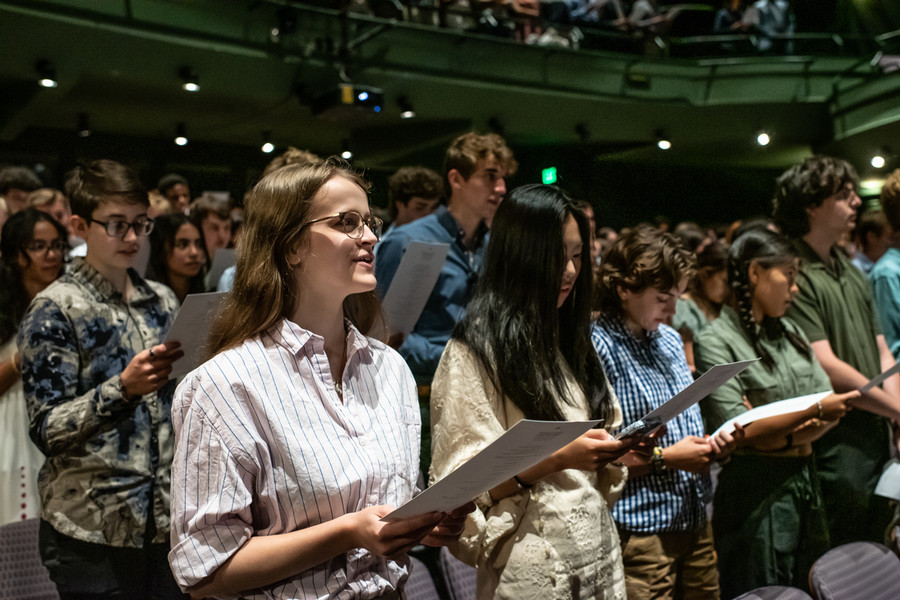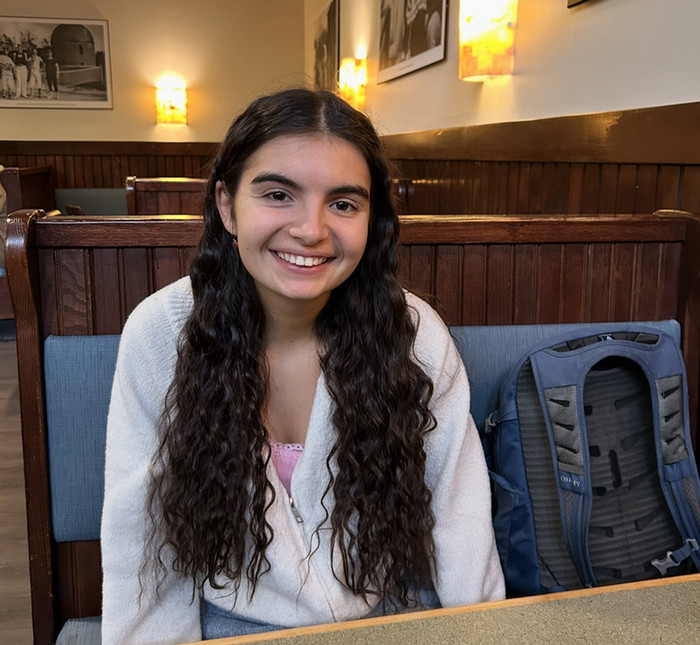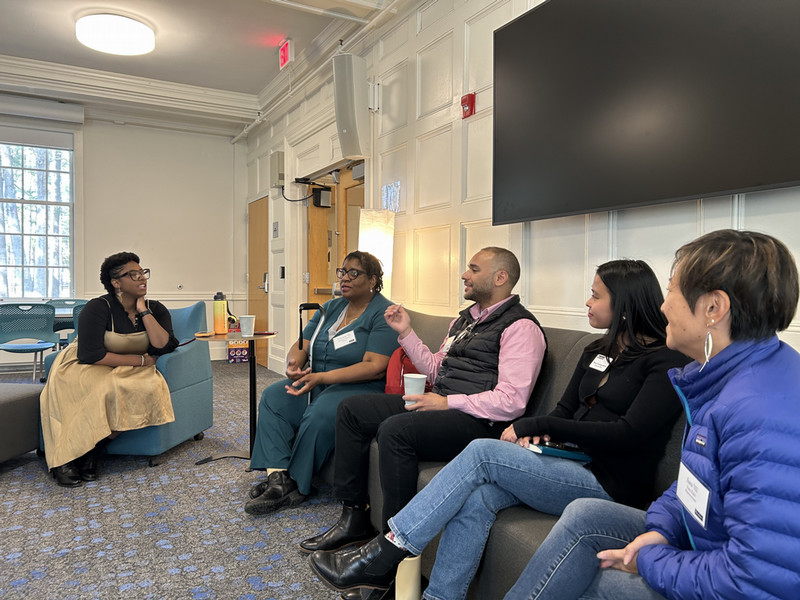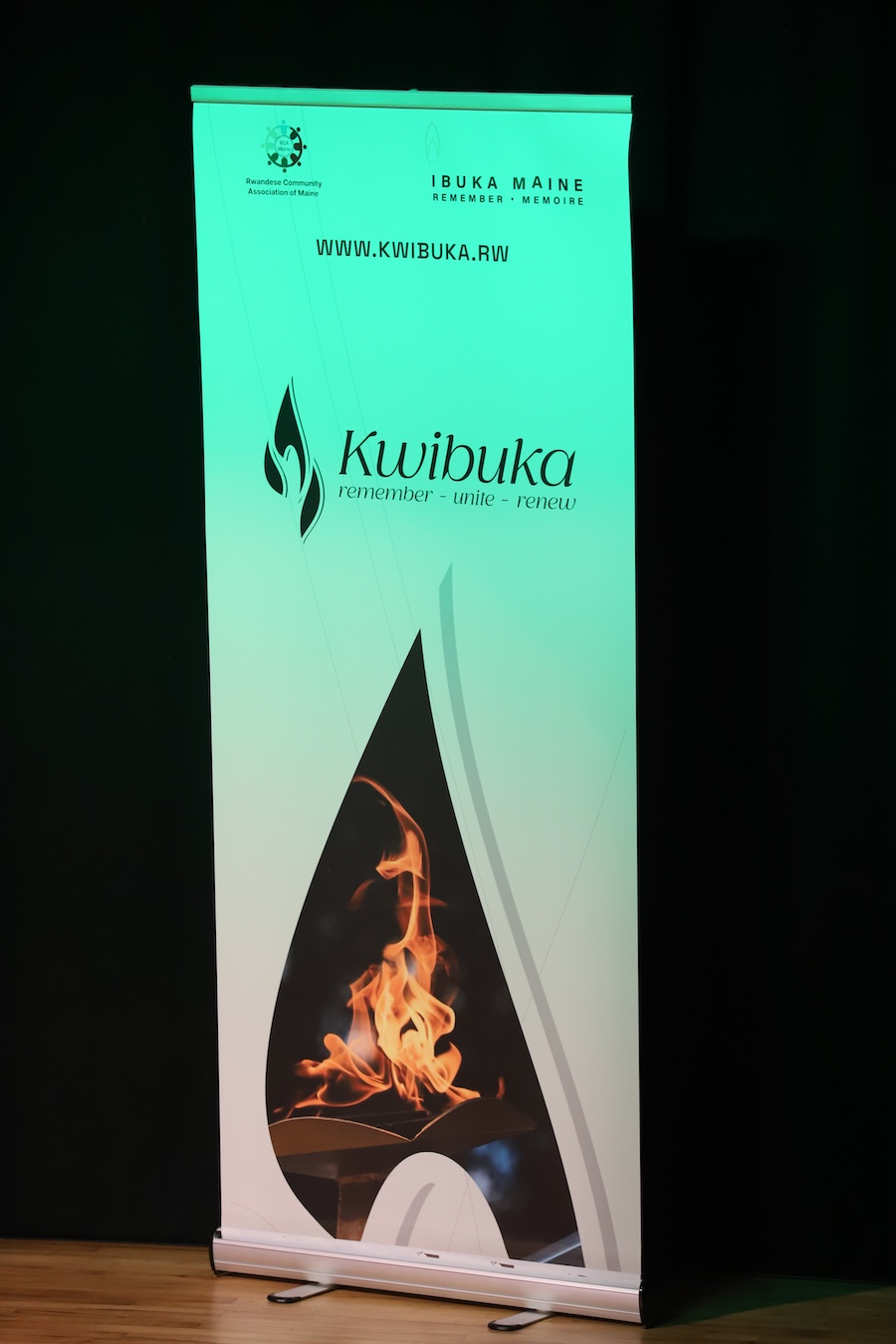Students Come Together for Interfaith Iftar
By Jane Godiner ’23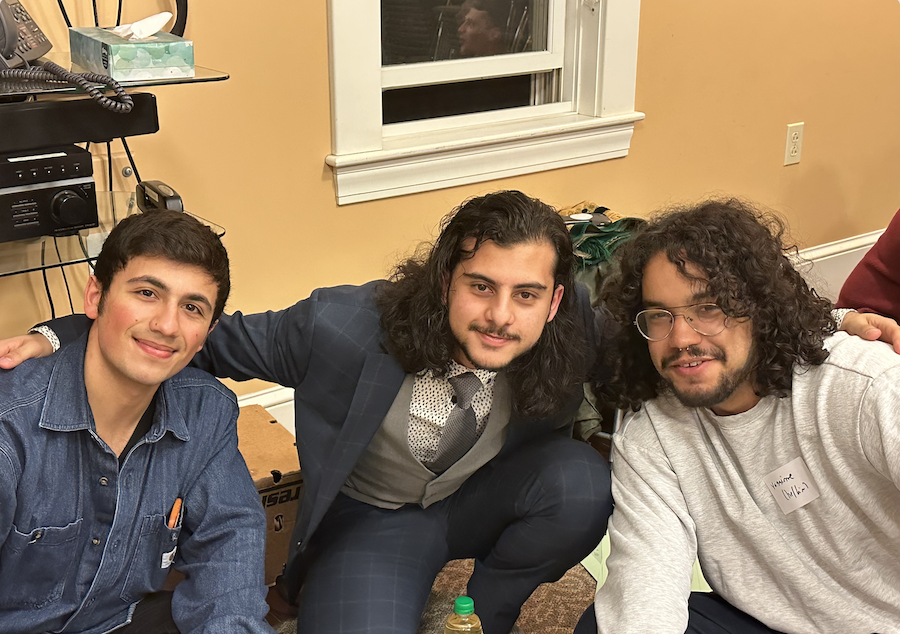
The night was complete with meaningful question prompts, plenty of food, and joyful conversation.
Eisa Rafat ’25, president of the MSA, was excited about the opportunity to invite his friends and peers to participate in an event that is especially significant to Bowdoin’s Muslim community.
“Iftar is just such a core part of who we are,” Rafat said. “Sharing that is such a beautiful thing.”
The MSA has made continuous efforts to create a sense of community among Muslim students at Bowdoin, but this event provided them with an opportunity to extend their reach across the entire campus.
“This was a learning opportunity, and this was really the chance to ask Muslims, ‘How is it to fast?’ ‘What is fasting, even?’ ‘What does iftar mean?’,” MSA member Aniqa Chowdhury ’26 said. “It's one thing to know about Islam and to read about it, and it's a completely different thing to connect people with it. It allows for empathy, understanding, and curiosity.”
MSA board member Ahmed Albayaty ’25, who recalls being one of few Muslim students at Bowdoin during his first year, believes that this event was also an opportunity to represent the growing community of Muslim students at the College.
“It was really nice to see all these people show up knowing that I can relate to them immediately without even knowing them,” Albayaty said. “That’s really the core of what this event is for me. It's showing to myself that there are other people like me, and showing people that aren't like me that there are other people like myself.”
Rafat agrees that the success of the interfaith iftar represents the metamorphosis—and growing presence—of the MSA.
“I'm very happy to say that I think the MSA is in a new chapter and on a new page of its true goal, which is community-building,” he said. “We now have the space to focus on what's important and the actual purpose of the MSA, which is to be a home away from home for a lot of Muslim students. It’s been a really great feeling for everyone.”
Wanshuang Zheng ’23 organized Sunday’s event as her capstone project for the Multifaith Fellowship—a yearlong program at Bowdoin that accepts four or so students annually to study with the director of religious and spiritual life and explore questions around religious identity and literacy. The fellowship's purpose is to foster interfaith dialogue and understanding on campus.
Zheng said she wanted the interfaith iftar to be an avenue for starting respectful and meaningful dialogue. “The relationship between food, faith, and fasting can be a really good starting point for any conversation—especially interfaith ones,” she said. “People need something to celebrate and to keep people together.”
For Zheng, the responsibility of hosting this event was, itself, a learning opportunity.
“This is a great experience for me, not only in terms of interfaith leadership planning, but also for connecting with people and speaking to their needs,” she said. “I'm learning about a lot of awesome spiritual practices, and that’s really meaningful to me.”
Oliver Goodrich, director of the Rachel Lord Center for Religious and Spiritual Life, believes that this event is emblematic of what he—and the Multifaith Fellows—hope to accomplish during the academic year.
“Throughout this past year, we've been doing once-a-month multifaith meals with the Rachel Lord Center,” he said. “This Sunday felt like a special time to be able to do it with a little more oomph, and to commemorate not just being together, but the significance of what iftar is.”
With just over a week left of Ramadan, MSA members hope that the recent interfaith iftar can set a precedent for sparking deeper connections on campus.
“On Sunday, we got to share something so important and so beautiful with people we really love,” Rafat said. “I don't think there's any better feeling than that.”
